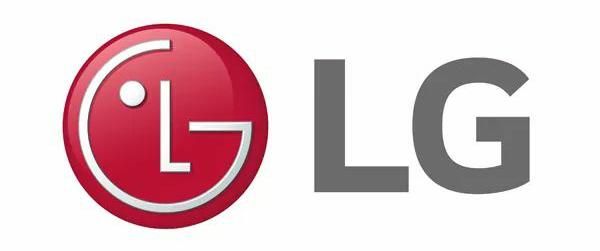What are recursive filters
Recursive filters, also known as Infinite Impulse Response (IIR) filters, are a class of digital filters used in signal processing that rely on both current and past input values as well as past output values to compute the current output. This characteristic distinguishes them from non-recursive filters, also known as Finite Impulse Response (FIR) filters, which depend only on the current and past input values.
Key Characteristics of Recursive Filters
-
Feedback Mechanism:
- Recursive filters use a feedback mechanism where past output values are fed back into the filter to compute the current output. This feedback loop creates an "infinite" impulse response, theoretically allowing the filter to respond indefinitely to a single impulse input.
-
Transfer Function:
- The transfer function of a recursive filter can be expressed as a ratio of two polynomials: H(z)=B(z)A(z)=b0+b1z−1+b2z−2+…+bMz−M1+a1z−1+a2z−2+…+aNz−NH(z) = \frac{B(z)}{A(z)} = \frac{b_0 + b_1 z^{-1} + b_2 z^{-2} + \ldots + b_M z^{-M}}{1 + a_1 z^{-1} + a_2 z^{-2} + \ldots + a_N z^{-N}}H(z)=A(z)B(z)?=1+a1?z−1+a2?z−2+…+aN?z−Nb0?+b1?z−1+b2?z−2+…+bM?z−M? where B(z)B(z)B(z) represents the numerator polynomial with the filter coefficients bib_ibi?, and A(z)A(z)A(z) represents the denominator polynomial with the coefficients aia_iai?.
-
Difference Equation:
- The output y[n]y[n]y[n] of a recursive filter can be described by the following difference equation: y[n]=∑i=0Mbix[n−i]−∑j=1Najy[n−j]y[n] = \sum_{i=0}^{M} b_i x[n-i] - \sum_{j=1}^{N} a_j y[n-j]y[n]=i=0∑M?bi?x[n−i]−j=1∑N?aj?y[n−j] where x[n]x[n]x[n] is the input signal, y[n]y[n]y[n] is the output signal, bib_ibi? are the feedforward coefficients, and aja_jaj? are the feedback coefficients.
-
Stability:
- Stability of recursive filters depends on the location of the poles of the transfer function. For the filter to be stable, all poles must lie within the unit circle in the z-plane.
-
Efficiency:
- Recursive filters are computationally efficient because they typically require fewer coefficients than FIR filters to achieve a given frequency response. This efficiency makes them suitable for real-time signal processing applications.
Applications of Recursive Filters
-
Signal Processing:
- Recursive filters are widely used in various signal processing applications, including audio processing, image processing, and communication systems, to filter out noise, enhance signals, and perform spectral shaping.
-
Control Systems:
- In control systems, recursive filters are used to implement controllers and observers that require real-time feedback and adjustment of control signals based on past and present data.
-
Radar and Sonar:
- In radar and sonar systems, recursive filters are used for target detection, clutter rejection, and signal enhancement, improving the ability to detect and track objects.
-
Medical Signal Processing:
- Recursive filters are employed in medical signal processing applications, such as electrocardiogram (ECG) and electroencephalogram (EEG) signal filtering, to remove noise and artifacts while preserving important diagnostic information.
Advantages of Recursive Filters
-
Computational Efficiency:
- Recursive filters require fewer calculations per output sample compared to FIR filters, making them suitable for applications where computational resources are limited.
-
Memory Efficiency:
- Due to their feedback nature, recursive filters need less memory to store coefficients and past samples, reducing memory usage in embedded systems and real-time applications.
-
Sharp Frequency Response:
- Recursive filters can achieve a sharp frequency response with fewer coefficients than FIR filters, making them effective for applications requiring precise frequency separation.
Disadvantages of Recursive Filters
-
Stability Issues:
- Ensuring stability can be challenging, as the feedback loop can cause instability if not properly designed. Instability occurs when poles of the filter transfer function lie outside the unit circle.
-
Nonlinear Phase Response:
- Unlike FIR filters, which can be designed to have a linear phase response, IIR filters typically exhibit a nonlinear phase response, which can introduce phase distortion in the filtered signal.
-
Sensitivity to Quantization Errors:
- Recursive filters are more sensitive to quantization and rounding errors due to the feedback loop, which can degrade performance in fixed-point implementations.
Summary
Recursive filters are powerful and efficient tools in digital signal processing, offering advantages in terms of computational and memory efficiency, as well as the ability to achieve sharp frequency responses. However, they require careful design to ensure stability and to manage potential issues with phase response and sensitivity to quantization errors. These filters are widely used across various fields, including audio processing, radar systems, control systems, and medical signal processing.








Rajat Kumar
2025-01-25 19:21:00
Yes
It is a platform which can help